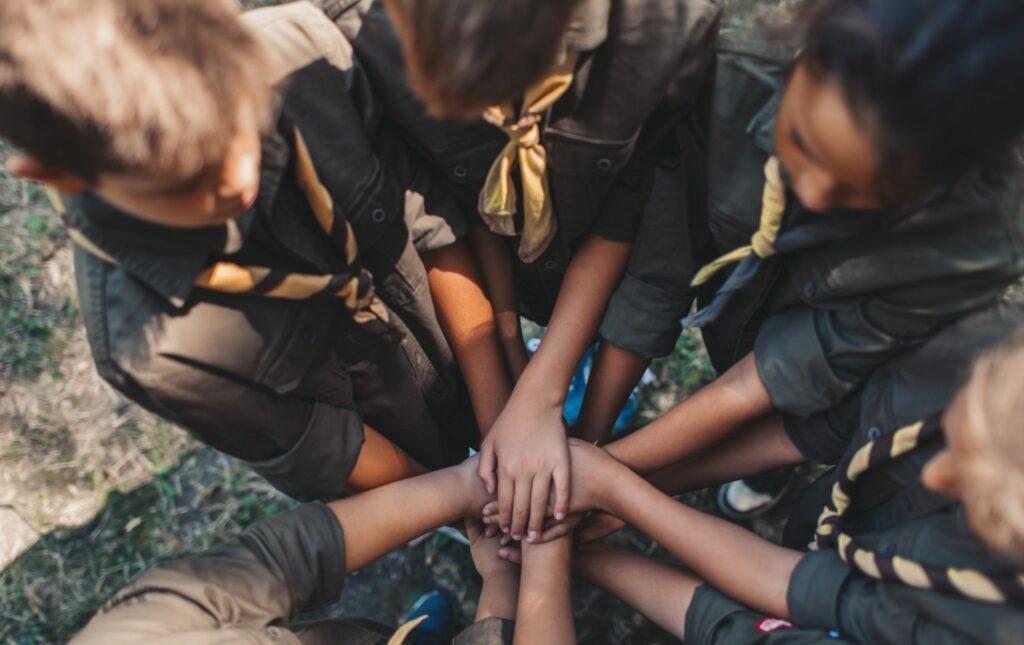 In the fall, many schools send home Cub Scouting information.
In the fall, many schools send home Cub Scouting information.
With the abundance of paperwork and fees sent home in the fall, it’s difficult to wrap your head around it all. Therefore before sign-up season, I would like to explain some of the scouting basics that I felt were unclear and overwhelming to me when my son brought home his first scout signup sheet. I hope that you can make an informed decision about if scouting is right for your family without being overwhelmed with the lingo and information. It has been seven years since my son joined scouting. I am so glad that we stuck it out through the learning curve because we have made so many friends and memories.
Here is a little about the scouting community here in Lafayette and my experience with the program as a parent and leader.
Keep in mind that I am not here to formally represent the Cub Scouting or Scouting organization. My explanations are from my own understanding of my families’ years of participation.
First thing first, the lingo.
Cub scouting is the term for younger scouts aged 6 to 11. Scouting is for older scouts aged 11 to 18. Scouts participate in large groups called Packs for Cub scouts and Troops for older scouts. Within the large groups are smaller groups, where scouts meet and participate with other scouts their own age or rank. These are called dens for Cub Scouts or troops for older Scouts.
Scouting is a national organization that provides family fun and adventure with purposeful learning to communities. Areas across the states have Scout councils which are local hubs for an area’s chartered scouting programs. The Council for the greater Lafayette area is Evangeline Council.
Evangeline council puts safety first.
All adult participants are Youth Protection trained. The training teaches leaders and parents the importance of the two-deep leadership rule. No scouts should ever be alone with a parent, leader, or volunteer. In my experience, the Evangeline council and the pack and troop that my family has participated in has taken this rule very seriously. Prevention is key. Scouts learn the three R’s to safety; Recognize, Resist, Report. More information about Youth Protection policies and training can be found on the official scouting website.
Churches or Schools charter Cub Scouting Packs (6-11 y.o.) and Scouting Troops (11-18 y.o.). Scouts meet with their Packs monthly and usually participate in an event or activity one weekend a month. Scout’s work and learn with other scouts their own age called dens or patrols. Scouting gives everyone an opportunity to participate and earn recognition for their accomplishments within the program. So yes, girls (AKA families that have sisters) are now allowed to be recognized for their participation in the program. You can find a Pack or Troop near you by visiting the Scout Me In website.
What I love most about scouting is that every Scout has an opportunity to successfully participate in and receive recognition for their accomplishments.
The curriculum is practical and purposeful.
Scouts learn life skills and participate in activities that are important to them. When I asked my friend Kelly, a scouting mom from Pack 371, to describe some of the skills learned in Cub scouting she explained that her scouts are, “learning how to budget, cook, live healthy lives, and survive the outdoors as well as building leadership and teamwork skills.”

We both laughed at how surprised some parents are to learn that their little kids are capable of doing such big things. When my son was 10, he and his den planned, budgeted, and executed a garage sale to raise money for animal toys and bedding for a local shelter. The adults only provided supervision and rides to the store. Together families learn and practice respect for their community, and environment.
Scouting promotes a set of values.
“A Scout is trustworthy, loyal, helpful, friendly, courteous, kind, obedient, cheerful, thrifty, brave, clean, and reverent.” Many parents see the importance of teaching these values, but find it difficult to plan, make time for meaningful activities that promote them.
Scouting has taken a huge load off of the pressure to organize ALL THE THINGS.
Families have had opportunities to participate in things that they may not have thought of if it were not for the scouting community. Packs and troops plan and participate in special events and activities. Leaders, parents, and the scouts share the process of planning. Many of the activities are paid for through the pack or troop with money earned by the scouts through fundraising, or at highly discounted rates. Besides hiking and camping, we’ve experienced camping on the USS KIDD in Baton Rouge, camping out at the zoo and going behind the scenes to feed the animals, Camping at NASA, free entry into local parks, and ball games in the area.
More information worth mentioning
For many families, the initial signup fees and uniform can be costly. Keep in mind that your family can join scouting at any point during the year, so don’t stress out if you need to wait until things calm down. There are also options for scouts to have fees waived and many packs and troops have second-hand uniforms for discounted costs or for free. This school year, when you are planning your family extracurriculars, I hope you consider what our local scouting community has to offer your kids and family.


















